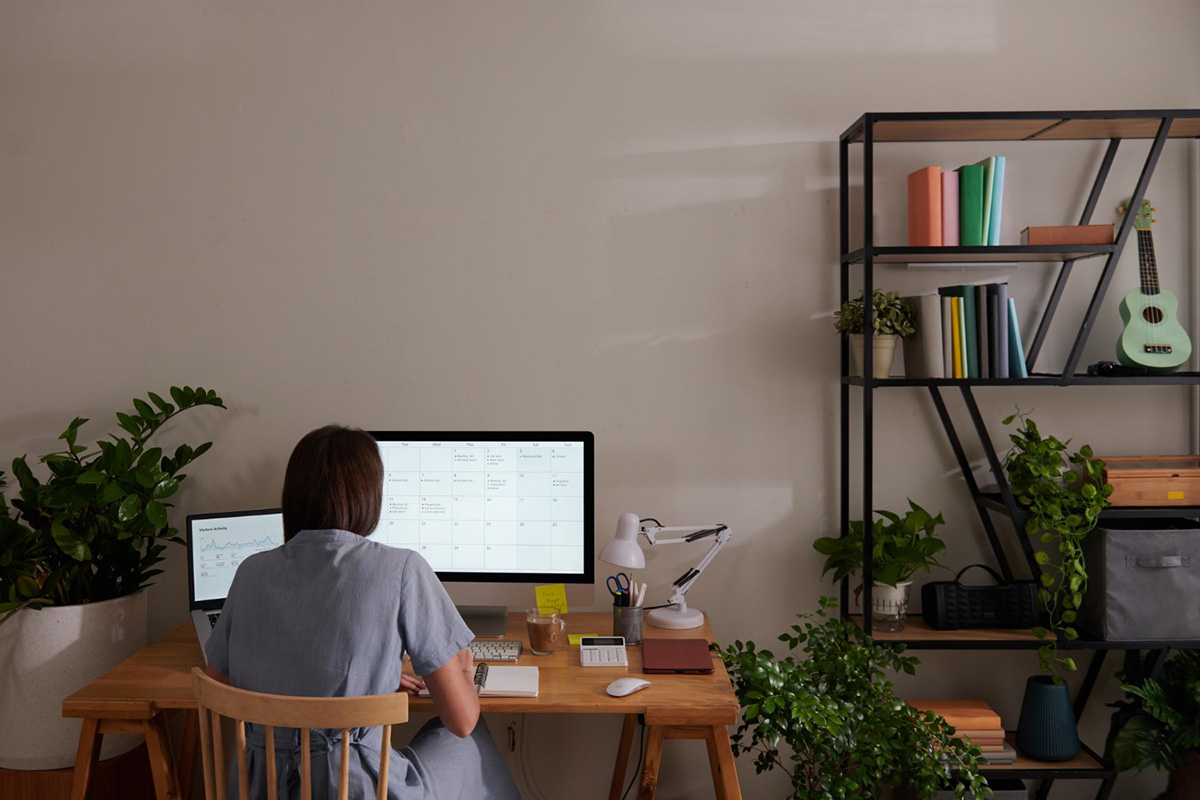How to Optimize Your Work from Home Space

With the rise of remote work, creating an optimal work from home (WFH) space has become more essential than ever. Whether you are a seasoned remote worker or new to WFH, designing a workspace that is comfortable, functional, and effective can be challenging. In this article, we will explore practical tips to help you optimize your WFH space and boost your productivity.
1. Choose the right location
Your home's layout, room dimensions, and the number of family members you live with are crucial factors to consider when selecting a WFH location. If possible, choose a dedicated room where you can work quietly without interruptions or distractions. If you don't have an extra room, consider setting up a corner in your living room or bedroom, where you can minimize noise and create a dedicated workspace.
2. Invest in comfortable furniture
Working at home requires furniture that is both comfortable and functional. You don't have to break the bank, but investing in an ergonomic chair, a sturdy desk, and a monitor stand can make a significant difference. A comfortable chair will support your posture and prevent back pain, and a desk with sufficient space for your equipment will reduce clutter and ensure you have enough room to work.
3. Eliminate distractions
When you're working from home, it's essential to minimize distractions as much as possible. Turn off your phone's notifications, avoid working near a window facing a busy street, and wear noise-cancelling headphones if necessary. If you have family members, consider setting boundaries, such as keeping your door closed, hanging a "Do Not Disturb" sign, or working during their school or work hours.
4. Personalize your space
Your WFH space should reflect your personality and inspire creativity, so add personal touches to make it your own. Display artwork, plants, or family photos that bring you joy and make you feel comfortable. Light scented candles, add a cozy throw, or buy a favorite coffee mug to make your workspace cozy and inviting.
5. Prioritize natural light and airflow
Adequate lighting and fresh air can help you focus and energize your mind and body. Position your desk near a window to maximize natural light, add a desk lamp for task lighting, and use a lightbulb with a natural or soft white glow that simulates natural light. Opening a window or using a fan can also improve air quality and circulate fresh air inside your workspace.
Conclusion
Creating an optimized WFH space can be a significant factor in your productivity and well-being. By choosing the right location, investing in comfortable furniture, eliminating distractions, personalizing your space, and prioritizing lighting and airflow, you're on your way to maximizing your WFH potential and feeling your best while doing it. If you're moving and seeking corporate housing in Greenville, SC, contact Upstate Corporate Housing to get a quote today.
